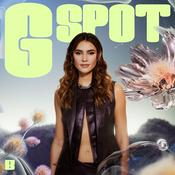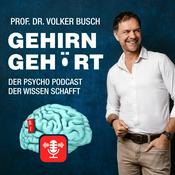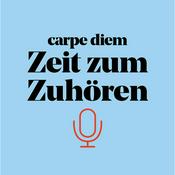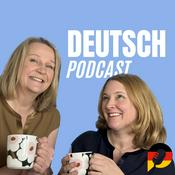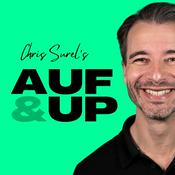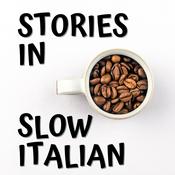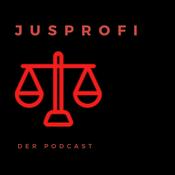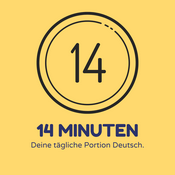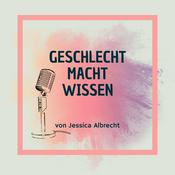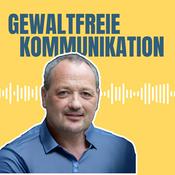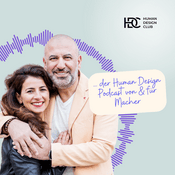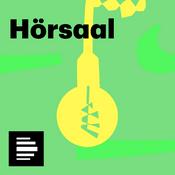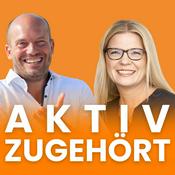457 Episoden
- We may build incredible AI. But can we contain our cruelty? Oxford professor Nick Bostrom explains.
Nick Bostrom, a professor at the University of Oxford and director of the Future of Humanity Institute, discusses the development of machine superintelligence and its potential impact on humanity. Bostrom believes that, in this century, we will create the first general intelligence that will be smarter than humans. He sees this as the most important thing humanity will ever do, but it also comes with an enormous responsibility.
Bostrom notes that there are existential risks associated with the transition to the machine intelligence era, such as the possibility of an underlying superintelligence that overrides human civilization with its own value structures. In addition, there is the question of how to ensure that conscious digital minds are treated well. However, if we succeed in ensuring the well-being of artificial intelligence, we could have vastly better tools for dealing with everything from diseases to poverty.
Ultimately, Bostrom believes that the development of machine superintelligence is crucial for a truly great future.
0:00 Smarter than humans
0:57 Brains: From organic to artificial
1:39 The birth of superintelligence
2:58 Existential risks
4:22 The future of humanity
----------------------------------------------------------------------------------
About Nick Bostrom:
Nick Bostrom is a Swedish-born philosopher with a background in theoretical physics, computational neuroscience, logic, and artificial intelligence, as well as philosophy. He is the most-cited professional philosopher in the world under the age of 50.
He is a Professor at Oxford University, where he heads the Future of Humanity Institute as its founding director. He is the author of some 200 publications, including Anthropic Bias (2002), Global Catastrophic Risks (2008), Human Enhancement (2009), and Superintelligence: Paths, Dangers, Strategies (2014), a New York Times bestseller which helped spark a global conversation about the future of AI. He has also published a series of influential papers, including ones that introduced the simulation argument (2003) and the concept of existential risk (2002).
Bostrom’s academic work has been translated into more than 30 languages. He is a repeat main TED speaker and has been interviewed more than 1,000 times by various media. He has been on Foreign Policy’s Top 100 Global Thinkers list twice and was included in Prospect’s World Thinkers list, the youngest person in the top 15. As a graduate student he dabbled in stand-up comedy on the London circuit, but he has since reconnected with the heavy gloom of his Swedish roots.
------------------------------------------------------------------------------06:30-19
---------------------
Learn more about your ad choices. Visit megaphone.fm/adchoices - Expert Louise Perry discusses the idea of sexual disenchantment, the commodification of sex, and the impact of the online porn industry on society.
Should we treat “big porn” in the same way we treat industries like “big tobacco”? Journalist Louise Perry thinks so. In her book, The Case Against the Sexual Revolution, Perry discusses the idea of sexual disenchantment, the commodification of sex, and the impact of the online porn industry on society.
She argues that the multibillion-dollar global industry is qualitatively different from past exposure to porn, as it normalizes extreme content and affects the sexual culture of an entire generation. Perry likens porn to "super stimuli" that tap into the natural drive for reproduction but exaggerate it in a maladaptive way, similar to fast food. She also critiques platforms like OnlyFans, noting that while it may appear to cut out the middleman, the platform itself still profits from sexual exploitation.
Perry expresses concern that despite many people having a robust critique of capitalism in other industries like gambling or junk food, they hesitate to apply the same scrutiny to the porn industry. But that may be changing.
0:00 Sexual disenchantment
0:29 Sex: It’s not private, it’s networked
1:06 A different beast: Digital porn
2:03 The rise of strangulation
3:07 Limbic capitalism & “super stimuli”
4:21 OnlyFans
4:52 The porn industry
----------------------------------------------------------------------------------
About Louise Perry:
Louise Perry is a writer and campaigner based in London, UK. She is a columnist at the New Statesman and a features writer for the Daily Mail. Her debut book, The Case Against the Sexual Revolution: A New Guide to Sex in the 21st Century, is published by Polity.
----------------------------------------------------------------------------------
-------------------------------------------------------------------06:30-19
---------------------
Learn more about your ad choices. Visit megaphone.fm/adchoices - Why friendships are becoming rarer in America, explained by author Richard Reeves.
Richard Reeves, a senior fellow at the Brookings Institution, discusses the importance of friendships and the potential “friendship recession.” He notes that loneliness can be as harmful as smoking 15 cigarettes per day, but measuring and quantifying friendships is difficult. According to Reeves, an ideal number of close friends is around three or four.
But alarmingly, 15% of young men today report having no close friends, compared to 3% in the 1990s. The COVID pandemic has further tested friendship networks, with women being the most affected due to their friendships' reliance on physical contact. Other factors likely have contributed to the decline in friendships in the 21st-century U.S., including geographical mobility, parenting demands, workism, and relationship breakdowns.
Reeves emphasizes the importance of acknowledging and nurturing friendships as they don't form spontaneously. Admitting the desire for friends requires vulnerability and openness, which may be difficult for some individuals.
0:00 A friendship recession
1:20 4 friendship formations
1:54 How many friends do people need?
2:21 The ideal relationship
3:03 Why are we losing friends?
4:20 Friendship & your health
5:07 Male friendships
5:43 Female friendships
6:27 The dystopia we must avoid
7:20 The hardest thing to admit
----------------------------------------------------------------------------------
About Richard Reeves:
Richard V. Reeves is a senior fellow at the Brookings Institution, where he directs the Future of the Middle Class Initiative and co-directs the Center on Children and Families. His Brookings research focuses on the middle class, inequality and social mobility.
Richard writes for a wide range of publications, including the New York Times, Guardian, National Affairs, The Atlantic, Democracy Journal, and Wall Street Journal. He is the author of Dream Hoarders (Brookings Institution Press, 2017), and John Stuart Mill – Victorian Firebrand (Atlantic Books, 2007), an intellectual biography of the British liberal philosopher and politician.
Dream Hoarders was named a Book of the Year by The Economist, a Political Book of the Year by The Observer, and was shortlisted for the Goddard Riverside Stephan Russo Book Prize for Social Justice. In September 2017, Politico magazine named Richard one of the top 50 thinkers in the U.S. For his work on class and inequality.
A Brit-American, Richard was director of strategy to the UK’s Deputy Prime Minister from 2010 to 2012. Other previous roles include director of Demos, the London-based political think-tank; social affairs editor of the Observer; principal policy advisor to the Minister for Welfare Reform, and research fellow at the Institute for Public Policy Research. Richard is also a former European Business Speaker of the Year and has a BA from Oxford University and a PhD from Warwick University.
--------------------
------------------------------------------------------06:30-19
---------------------
Learn more about your ad choices. Visit megaphone.fm/adchoices 7 rules of business I wish I knew when I was 30, with bestselling author Aaron Ross
20.11.2025 | 9 Min.The 7 things I wish I knew about sales when I was 30, explained by bestselling author Aaron Ross.
Sales and revenue executives often feel overwhelmed and uncertain about driving revenue to meet their goals, facing fluctuating success. Aaron Ross, author of From Impossible to Inevitable: How Hypergrowth Companies Create Predictable Revenue, outlines seven ingredients for creating hypergrowth.
First, companies should identify a niche, finding the perfect balance between market problems, ideal customers, and effective communication. Second, they must create a predictable pipeline for generating leads and opportunities. Third, sales should be scalable, with the sales team designed for easy growth. Fourth, companies should focus on fewer, bigger, and better deals. Fifth, it's important to accept that achieving goals takes longer than desired, so patience is key. Sixth, embracing employee ownership encourages a more invested workforce. Lastly, defining destiny empowers individuals within a company, leading to a more united vision for growth.
0:00 The revenue struggle (That time my business tanked)
0:50 The 7 keys to hypergrowth
1:25 1. Nail a niche
2:04 2. Create predictable pipeline
2:41 3. Make sales scalable
3:20 4. Double your deal size
3:45 5. Do the time
4:27 6. Embrace employee ownership
4:56 7. Define your destiny
----------------------------------------------------------------------------------
About Aaron Ross:
Aaron Ross is an executive sales advisor, board member/NED, and keynote speaker. He’s the co-author of From Impossible To Inevitable (with Jason Lemkin) and Predictable Revenue. Ross is married with 10 children (half through adoption) and lives in Edinburgh, UK. He can be found at www.FromImpossible.com.
----------------------------------------------------------------06:30-19
---------------------
Learn more about your ad choices. Visit megaphone.fm/adchoices- 5 health experts, including Harvard professor Daniel Lieberman, share the exact ways exercise can lead to a healthier lifespan.
In this interview, health experts Eric Kandel, Daniel Lieberman, Morgan Levine, Jillian Michaels, and Wendy Suzuki discuss the controllable nature of aging, citing how exercise can lead to a healthier lifespan. They highlight the specific ways exercise can reduce memory loss, prevent diseases, and maintain overall health.
------------------------------
-----------------------------------------------------------------06:30-19
---------------------
Learn more about your ad choices. Visit megaphone.fm/adchoices
Weitere Bildung Podcasts
Trending Bildung Podcasts
Über Big Think
Big Think is the leading source of expert-driven, actionable, educational content -- with thousands of videos, featuring experts ranging from Bill Clinton to Bill Nye, we help you get smarter, faster. Get actionable lessons from the world’s greatest thinkers & doers. Our experts are either disrupting or leading their respective fields. We aim to help you explore the big ideas and core skills that define knowledge in the 21st century, so you can apply them to the questions and challenges in your own life.
Podcast-WebsiteHöre Big Think, Eine Stunde History - Deutschlandfunk Nova und viele andere Podcasts aus aller Welt mit der radio.at-App
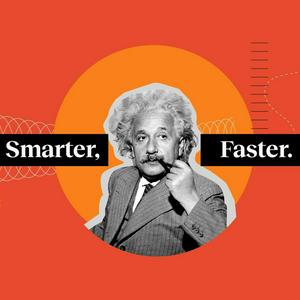
Hol dir die kostenlose radio.at App
- Sender und Podcasts favorisieren
- Streamen via Wifi oder Bluetooth
- Unterstützt Carplay & Android Auto
- viele weitere App Funktionen
Hol dir die kostenlose radio.at App
- Sender und Podcasts favorisieren
- Streamen via Wifi oder Bluetooth
- Unterstützt Carplay & Android Auto
- viele weitere App Funktionen


Big Think
Code scannen,
App laden,
loshören.
App laden,
loshören.



